
The Pink City of Southern France
Toulouse, often referred to as 'La Ville Rose' or 'The Pink City,' is a charming and vibrant city in the south of France. Known for its unique terracotta brick architecture, the city exudes a warm and welcoming atmosphere that is both historically rich and culturally dynamic. As you wander through its streets, you'll find a delightful mix of bustling markets, quaint cafés, and stunning landmarks that tell the story of its Roman and medieval past. The city's heart is the Capitole de Toulouse, a magnificent building that houses both the city hall and the Théâtre du Capitole. The grand square in front of it is a popular gathering spot, perfect for people-watching and soaking in the local ambiance. Nearby, the Basilica of Saint-Sernin, a UNESCO World Heritage site, stands as one of the largest remaining Romanesque buildings in Europe. Its intricate design and historical significance make it a must-visit. Toulouse is also a hub for aerospace and technology, being the home of Airbus headquarters and the Cité de l'Espace, a space-themed park that offers fascinating exhibits and interactive experiences for all ages. The Garonne River runs through the city, offering picturesque views and relaxing boat rides. The banks of the river are ideal for evening strolls, where you can witness the beautiful bridges illuminated against the twilight sky. Food lovers will revel in Toulouse's culinary delights. The local cuisine is a hearty blend of traditional French flavors with a southwestern twist. Don't miss trying the famed cassoulet, a slow-cooked casserole of white beans, sausage, and duck. The city's vibrant markets, like Marché Victor Hugo, are perfect spots to sample local produce, cheeses, and wines. Whether you're a history buff, a foodie, or simply looking to enjoy the laid-back charm of southern France, Toulouse offers a unique and memorable experience. Its blend of old-world charm and modern innovation makes it a destination worth exploring.
Local tips in Toulouse
- Visit the Capitole de Toulouse early in the morning to avoid crowds and enjoy the beautiful square in peace.
- Explore the city's markets, especially Marché Victor Hugo, for fresh local produce and a taste of authentic Toulouse cuisine.
- Take a boat ride on the Garonne River for unique views of the city's landmarks and a relaxing experience.
- Don't miss the Basilica of Saint-Sernin, a UNESCO World Heritage site, for its stunning architecture and historical significance.
- Try the regional dish cassoulet at a local restaurant for an authentic taste of Toulouse's culinary heritage.
Neighbourhoods in Toulouse
The Pink City of Southern France
Toulouse, often referred to as 'La Ville Rose' or 'The Pink City,' is a charming and vibrant city in the south of France. Known for its unique terracotta brick architecture, the city exudes a warm and welcoming atmosphere that is both historically rich and culturally dynamic. As you wander through its streets, you'll find a delightful mix of bustling markets, quaint cafés, and stunning landmarks that tell the story of its Roman and medieval past. The city's heart is the Capitole de Toulouse, a magnificent building that houses both the city hall and the Théâtre du Capitole. The grand square in front of it is a popular gathering spot, perfect for people-watching and soaking in the local ambiance. Nearby, the Basilica of Saint-Sernin, a UNESCO World Heritage site, stands as one of the largest remaining Romanesque buildings in Europe. Its intricate design and historical significance make it a must-visit. Toulouse is also a hub for aerospace and technology, being the home of Airbus headquarters and the Cité de l'Espace, a space-themed park that offers fascinating exhibits and interactive experiences for all ages. The Garonne River runs through the city, offering picturesque views and relaxing boat rides. The banks of the river are ideal for evening strolls, where you can witness the beautiful bridges illuminated against the twilight sky. Food lovers will revel in Toulouse's culinary delights. The local cuisine is a hearty blend of traditional French flavors with a southwestern twist. Don't miss trying the famed cassoulet, a slow-cooked casserole of white beans, sausage, and duck. The city's vibrant markets, like Marché Victor Hugo, are perfect spots to sample local produce, cheeses, and wines. Whether you're a history buff, a foodie, or simply looking to enjoy the laid-back charm of southern France, Toulouse offers a unique and memorable experience. Its blend of old-world charm and modern innovation makes it a destination worth exploring.
When is the best time to go to Toulouse?
Iconic landmarks you can’t miss
Place du Capitole
Explore the iconic Place du Capitole in Toulouse, a stunning historical square brimming with culture, architecture, and vibrant local life.
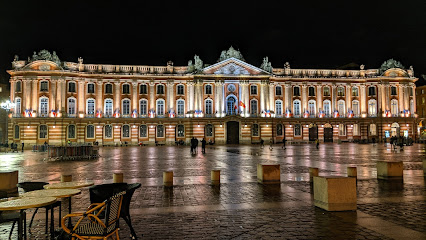
Pierre-Baudis Japanese Garden
Explore the enchanting Pierre-Baudis Japanese Garden in Toulouse, a tranquil haven of Japanese artistry and natural beauty that captivates every visitor.
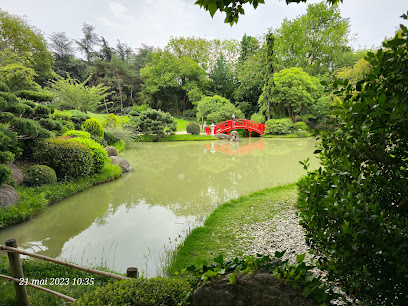
Basilique Saint-Sernin de Toulouse
Discover the grandeur of the Basilica of Saint-Sernin in Toulouse, a stunning Romanesque masterpiece and a UNESCO World Heritage Site.
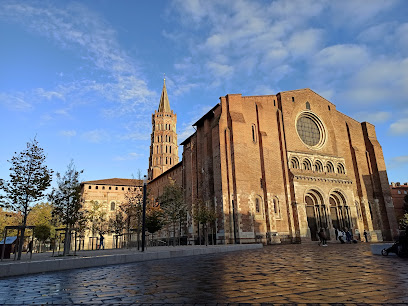
Jardin des Plantes
Explore the enchanting Jardin des Plantes, a botanical haven in Toulouse, perfect for nature lovers and anyone seeking tranquility in the city.
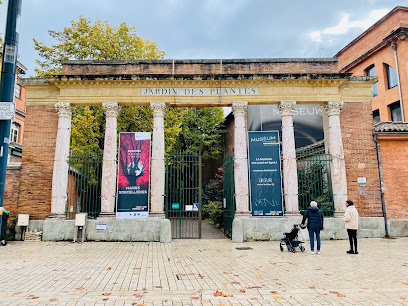
Couvent des Jacobins
Immerse yourself in the historic charm and stunning architecture of the Couvent des Jacobins, a must-see cultural landmark in Toulouse.
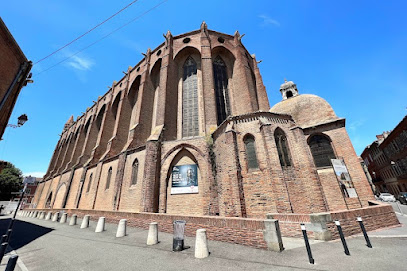
Pont Neuf
Explore Pont Neuf, the historic bridge of Toulouse, where stunning views and rich history await every traveler.
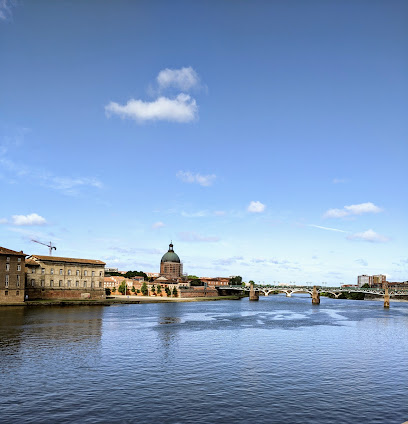
Place Saint-Pierre
Discover the vibrant atmosphere of Place Saint-Pierre in Toulouse, a perfect blend of history, culture, and social life in the heart of the city.
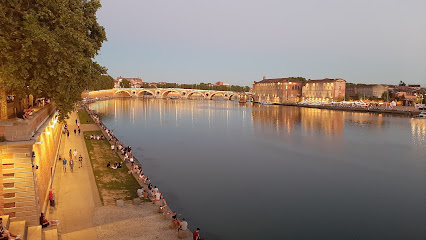
Cité de l'Espace
Discover the universe's mysteries at Cité de l'Espace in Toulouse, a premier science museum featuring interactive exhibits, IMAX films, and an awe-inspiring planetarium.

Square Charles de Gaulle
Explore the enchanting Square Charles de Gaulle, a serene city park in Toulouse filled with lush greenery, historic monuments, and vibrant local culture.
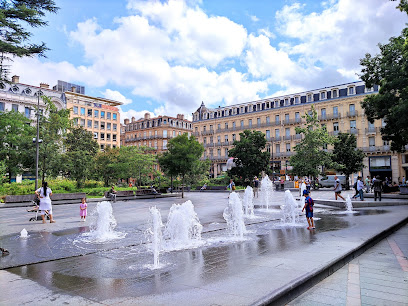
Saint Stephen's Cathedral
Discover the beauty and history of Saint Stephen's Cathedral in Toulouse, a stunning Gothic masterpiece that captivates all visitors with its intricate design and rich heritage.
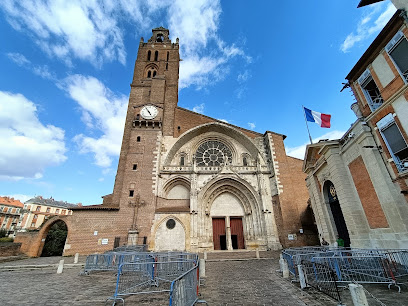
Grand Rond
Explore the lush beauty of Grand Rond, a historical park in Toulouse perfect for relaxation, picnics, and enjoying the vibrant local culture.
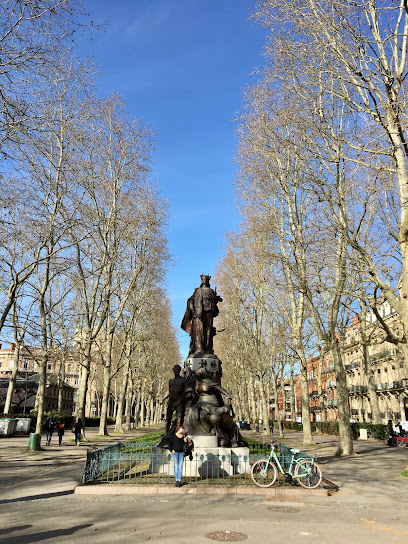
Muséum de Toulouse
Discover the Muséum de Toulouse, a vibrant natural history museum showcasing the wonders of biodiversity and cultural heritage in Toulouse, France.
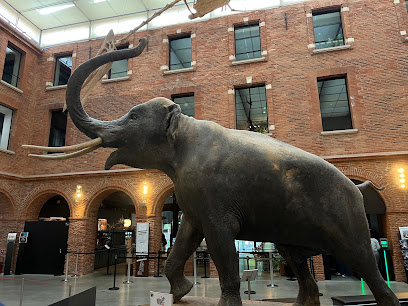
Les Abattoirs
Discover contemporary art at Les Abattoirs, Toulouse's premier modern art museum, blending history and culture within a vibrant artistic space.
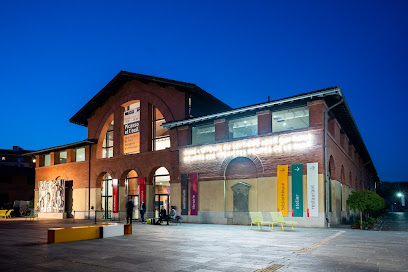
Jardin Compans-Caffarelli
Experience the serene beauty of Jardin Compans-Caffarelli, a stunning garden in Toulouse perfect for relaxation and exploration amidst vibrant nature.
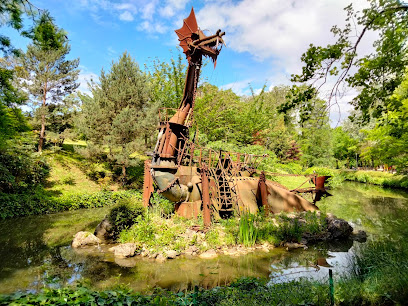
Pont Saint-Pierre
Explore the stunning Pont Saint-Pierre in Toulouse, a blend of architectural beauty and vibrant city life along the picturesque Garonne River.
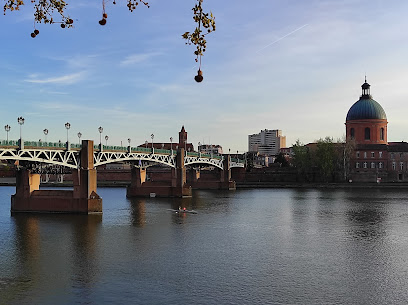
Unmissable attractions to see
Pierre-Baudis Japanese Garden
Find serenity in Toulouse at the Pierre-Baudis Japanese Garden, a tranquil escape inspired by Kyoto's historic landscapes and Zen philosophy.
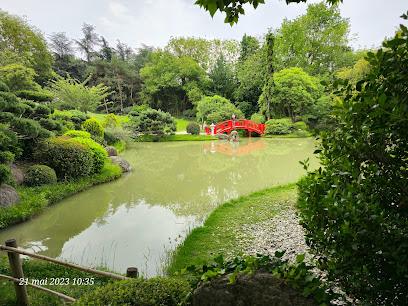
Pierre-Baudis Japanese Garden
Experience tranquility in Toulouse at the Pierre-Baudis Japanese Garden, a serene escape inspired by Kyoto's historic landscapes.
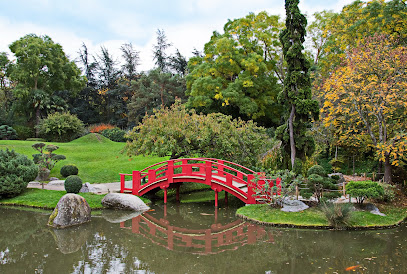
Basilique Saint-Sernin de Toulouse
Explore Toulouse's iconic Romanesque basilica, a UNESCO World Heritage site and a major stop on the Santiago de Compostela pilgrimage route.
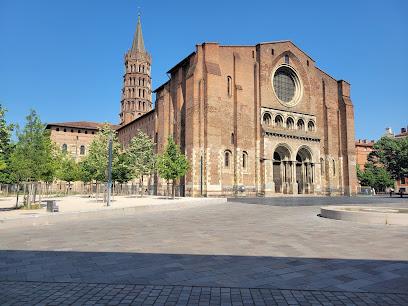
Musée aeroscopia
Explore the history of flight at Musée Aeroscopia in Toulouse, featuring iconic aircraft like the Concorde and Airbus A380.
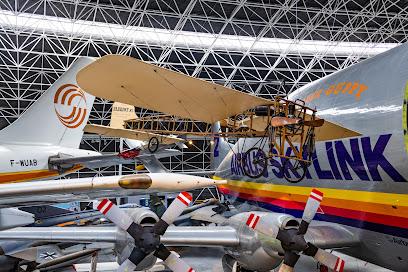
Jardin des Plantes
Escape to the serene Jardin des Plantes in Toulouse, a historic botanical garden offering lush greenery and tranquil spaces for relaxation and recreation.
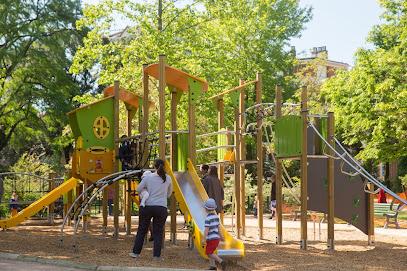
Couvent des Jacobins
Explore the Couvent des Jacobins in Toulouse: a medieval architectural gem with a rich history and the final resting place of St. Thomas Aquinas.
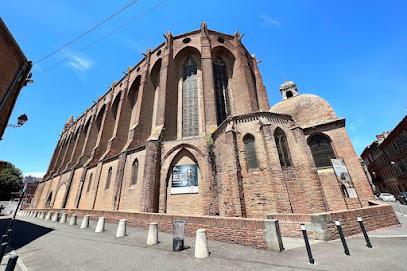
Prairie des Filtres
Discover the charm of Prairie des Filtres, a serene city park in Toulouse, where nature meets culture along the Garonne River.
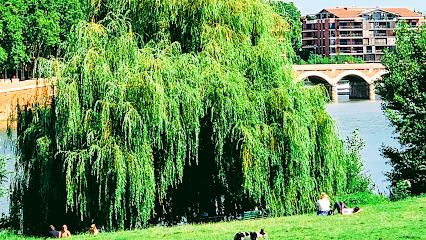
Cité de l'Espace
Explore the universe at Toulouse's Cité de l'Espace: interactive exhibits, spacecraft models, and cosmic adventures for all ages. A stellar experience awaits!
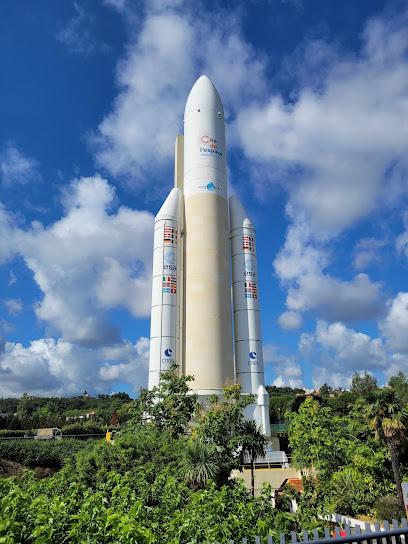
Place Saint-Pierre
Experience the vibrant atmosphere of Place Saint-Pierre in Toulouse, a hub of culture, cuisine, and stunning river views. A must-see destination!
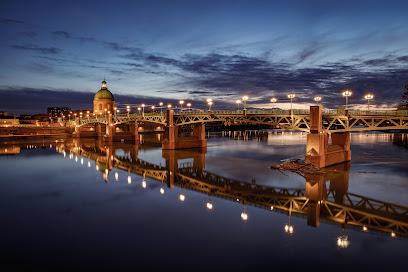
Square Charles de Gaulle
A serene city park in Toulouse, perfect for relaxation, exploration, and soaking in the local atmosphere amidst historical landmarks.
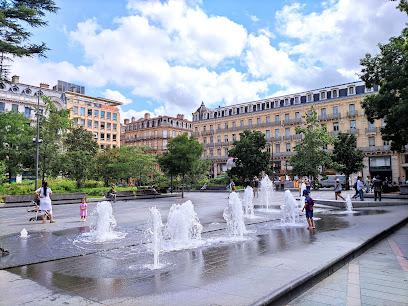
Saint Stephen's Cathedral
Explore Toulouse Cathedral: a captivating blend of architectural styles, rich history, and artistic treasures in the heart of the Pink City.
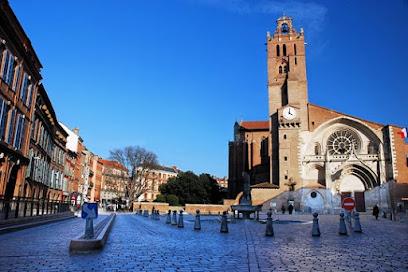
Grand Rond
Escape to the tranquility of Grand Rond, Toulouse's historic circular garden, offering lush greenery and a peaceful retreat in the city center.
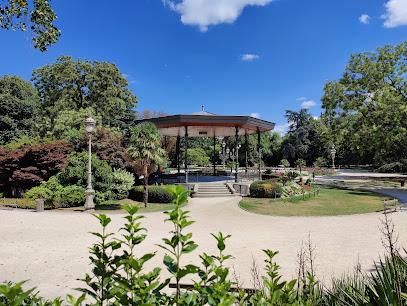
Les Abattoirs
Explore modern and contemporary art in a repurposed slaughterhouse at Toulouse's cultural hub, Les Abattoirs museum.
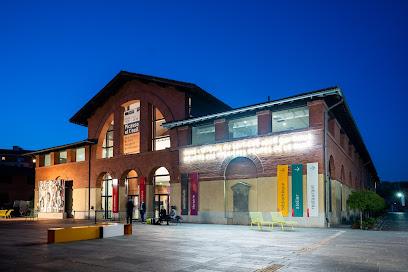
Jardin Compans-Caffarelli
Escape to tranquility in Toulouse's Jardin Compans-Caffarelli, a vibrant park with a Japanese garden, cultural tributes, and recreational spaces.
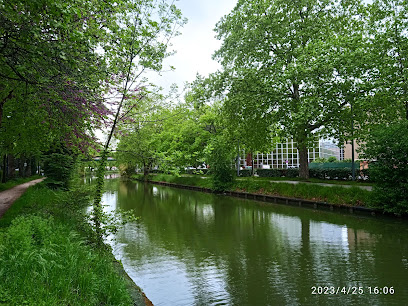
Musée des Augustins
Discover medieval sculptures and fine arts at Toulouse's Musée des Augustins, housed in a stunning 14th-century monastery. Reopening late 2025!
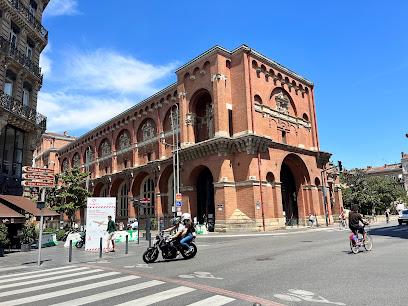
Essential places to dine
Au Pois Gourmand restaurant terrasse gastronomique
Experience exquisite French cuisine at Au Pois Gourmand, where culinary artistry meets a charming terrace ambiance in Toulouse.
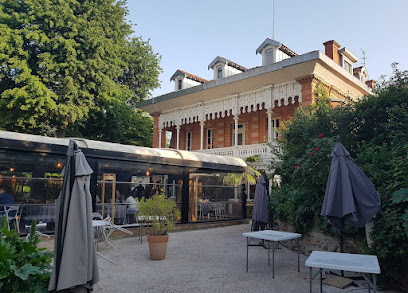
Bistroquet à la Une
Discover the culinary delights of Bistroquet à la Une in Toulouse—where Mediterranean flavors meet Southwest French cuisine in a cozy setting.
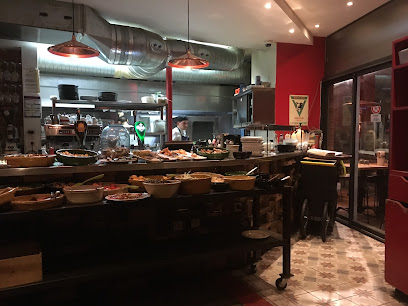
Restaurant J'Go Toulouse
Experience authentic French cuisine at Restaurant J'Go Toulouse - where local flavors meet bistro charm.
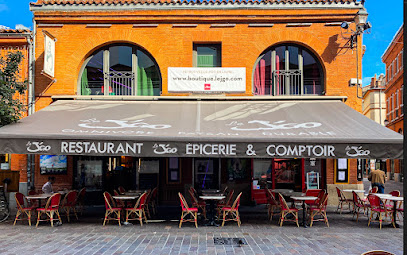
Le MAY
Discover authentic French flavors at Le MAY in Toulouse - a delightful restaurant offering traditional dishes in a cozy atmosphere.
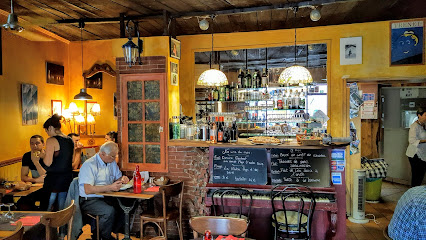
Aux Pieds sous la Table
Experience authentic French cuisine at Aux Pieds sous la Table in Toulouse – where tradition meets taste in every delightful dish.
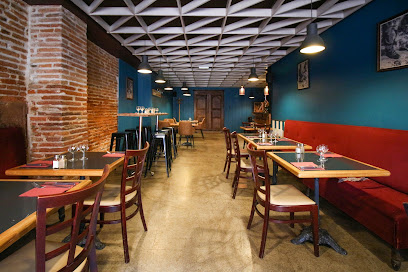
Les Sales Gosses (à TOULOUSE)
Experience authentic French cuisine at Les Sales Gosses in Toulouse—where tradition meets innovation in every delicious dish.
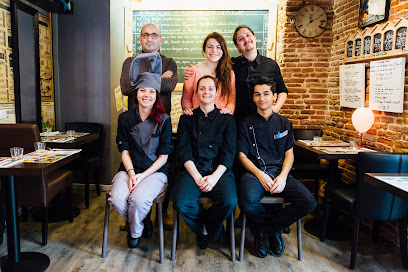
Oh la vache!
Experience authentic French cuisine at Oh la vache! in Toulouse – where every meal is a celebration of flavors and tradition.
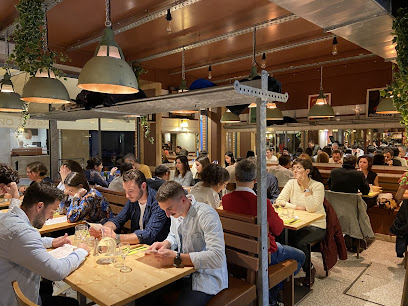
Restaurant Michel Sarran
Experience unparalleled French cuisine at Restaurant Michel Sarran - where culinary artistry meets exceptional service in Toulouse.
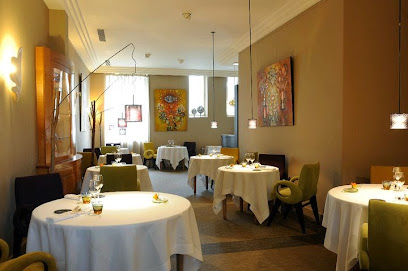
La Gourmandine - Côté Marché - Toulouse
Experience exquisite haute French cuisine and fine wines at La Gourmandine - Côté Marché in Toulouse's vibrant heart.
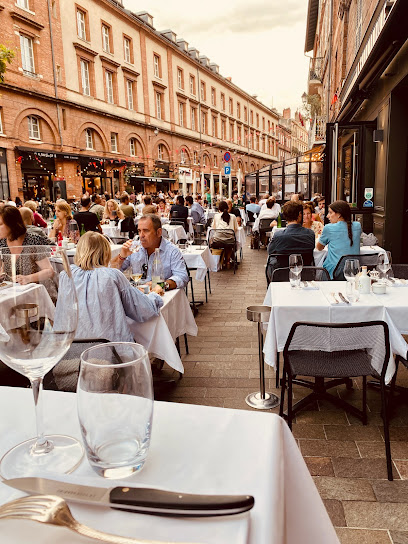
Restaurant Le Bon Vivre
Experience the essence of French cuisine at Restaurant Le Bon Vivre in Toulouse - where culinary tradition meets modern elegance.
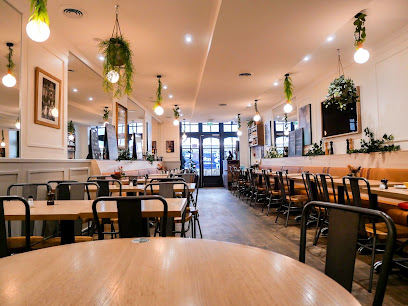
Restaurant Emile
Discover exquisite French cuisine at Restaurant Emile in Toulouse – where every meal is a culinary journey.
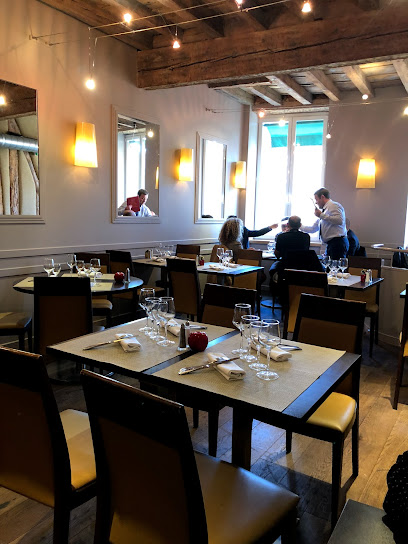
Le Point D'ogre
Experience authentic French cuisine with a barbecue flair at Le Point D'ogre in Toulouse – where every meal is a celebration.
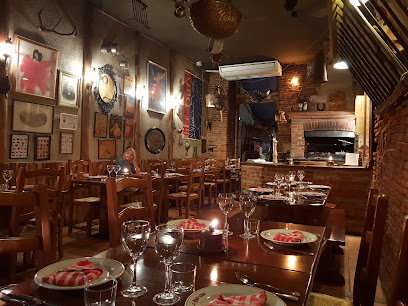
Le Cantou
Experience authentic French cuisine in Toulouse at Le Cantou, where culinary artistry meets vibrant social ambiance.
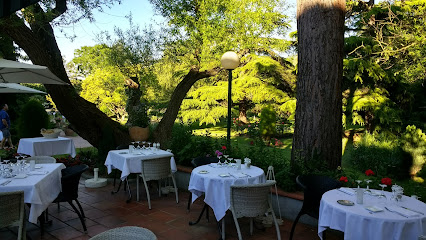
Les Fortes Têtes
Experience authentic French cuisine at Les Fortes Têtes in Toulouse – where every meal is a celebration of flavor and tradition.
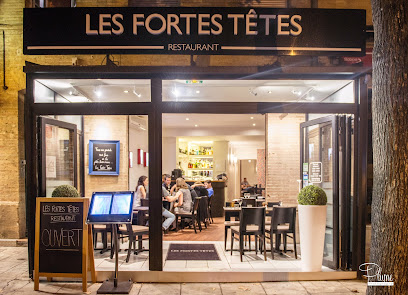
Cécile
Discover authentic French cuisine at Cécile in Toulouse's Carmes district - where tradition meets taste.
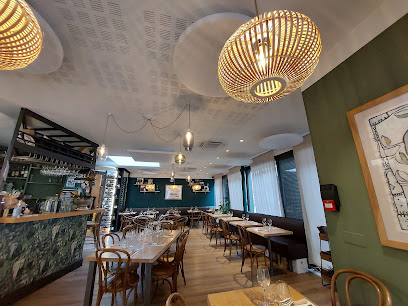
Markets, malls and hidden boutiques
Primark
Shop affordable fashion at Primark in Toulouse, where trendy styles meet budget-friendly prices for an unforgettable shopping experience.
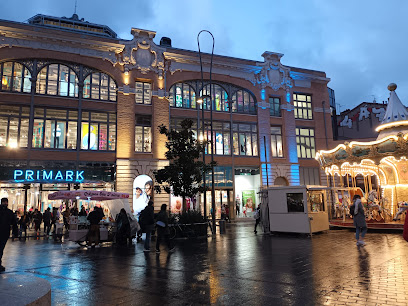
Galeries Lafayette Toulouse
Discover the epitome of French luxury shopping at Galeries Lafayette Toulouse, featuring a stunning array of fashion, beauty, and lifestyle brands.
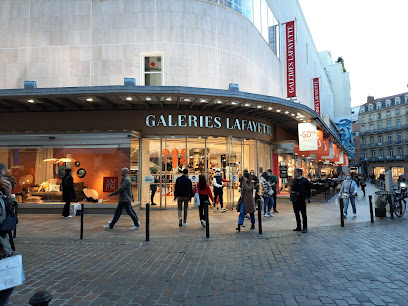
Centre Commercial Espace Saint Georges
Discover shopping, dining, and entertainment at Centre Commercial Espace Saint Georges in Toulouse - a vibrant hub for all tourists.
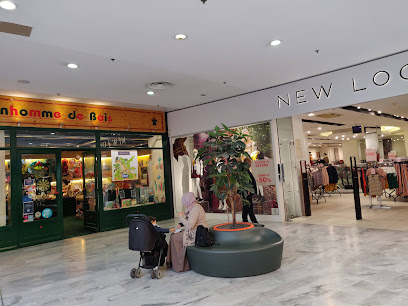
Nature et Découvertes
Explore Nature et Découvertes in Toulouse for unique gifts that celebrate nature, sustainability, and local craftsmanship.
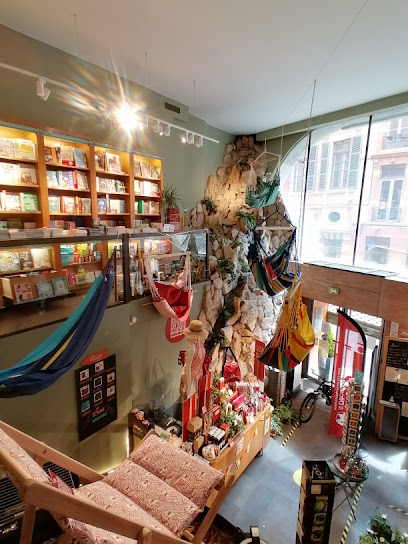
La Maison de la Violette
Experience the charm of Toulouse at La Maison de la Violette, where the essence of the violet flower brings culture and flavor to life.
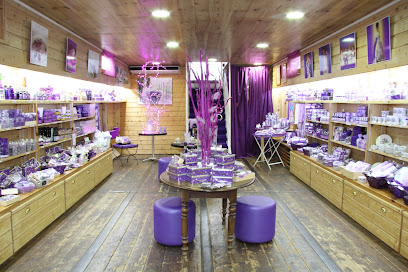
Louis Vuitton Toulouse
Experience the pinnacle of luxury shopping at Louis Vuitton Toulouse, where timeless elegance meets exceptional craftsmanship in leather goods.
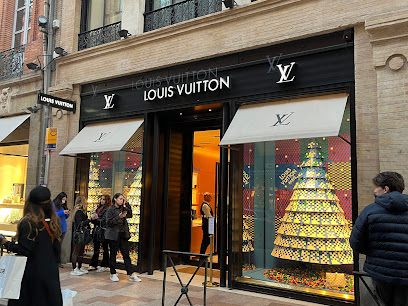
Modi In
Explore the vibrant world of fashion at Modi In, Toulouse's boutique gem, offering a unique selection of clothing, denim, and accessories for every style.
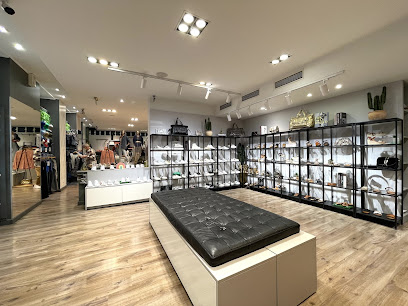
Etam Lingerie et Prêt-à-porter
Explore the chic elegance of women's fashion at Etam Lingerie et Prêt-à-porter, offering exquisite lingerie, swimwear, and stylish clothing in Toulouse.
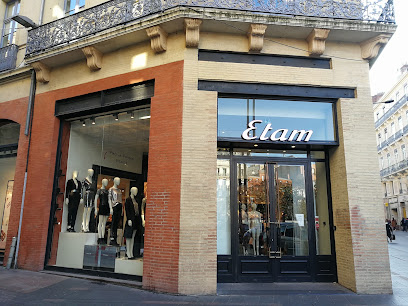
Ness' boutique
Explore Ness' Boutique in Toulouse for unique clothing styles that blend local flair with contemporary fashion, perfect for all tastes.
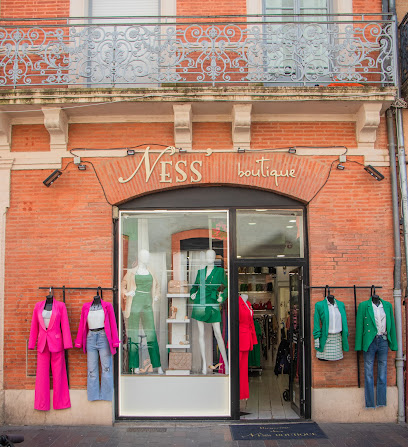
Carhartt WIP Store Toulouse
Discover cutting-edge urban fashion at Carhartt WIP Store Toulouse, where style meets quality in the vibrant heart of the city.
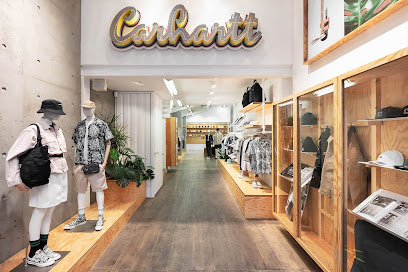
Flying Tiger Copenhagen Toulouse
Explore the colorful world of Flying Tiger Copenhagen in Toulouse for unique gifts, quirky home goods, and delightful souvenirs for all ages.
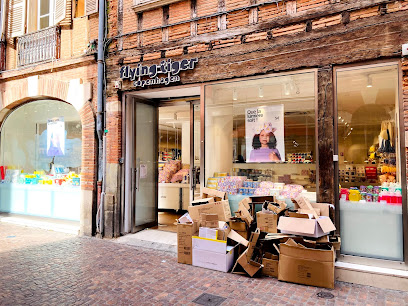
L'idée Cadeaux ️
Explore L'idée Cadeaux in Toulouse for unique gifts, collectibles, and local treasures that make perfect souvenirs.
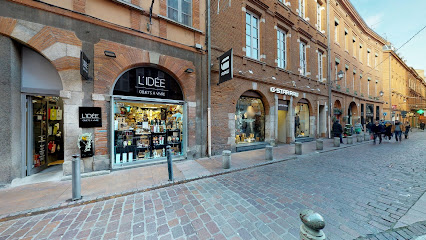
Violet's Treasures
Explore Violet's Treasures in Toulouse, a charming gift basket store offering exquisite local products perfect for souvenirs or special occasions.
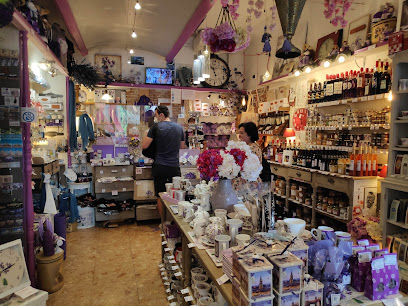
PYLONES
Explore PYLONES in Toulouse for unique gifts and vibrant home decor that capture the essence of French creativity and charm.
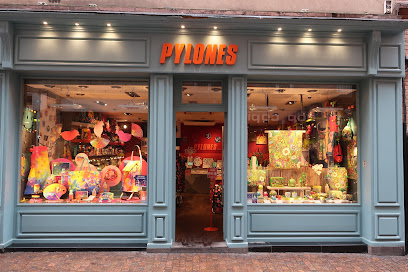
Macarel Tolosa
Explore the heart of Toulouse at Macarel Tolosa, where unique souvenirs and local artistry meet in a charming shopping experience.
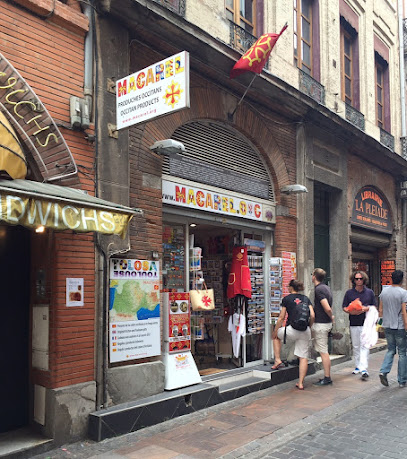
Essential bars & hidden hideouts
Le Bar Basque Toulouse
Experience the vibrant atmosphere and exquisite tapas at Le Bar Basque, a must-visit culinary gem in Toulouse.
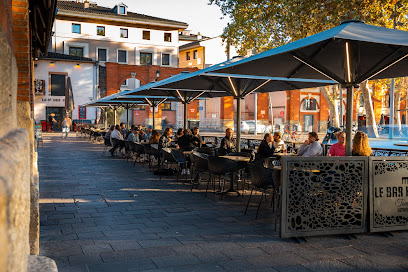
Café Populaire
Experience the vibrant nightlife of Toulouse at Café Populaire, offering delightful drinks and a warm atmosphere for every visitor.
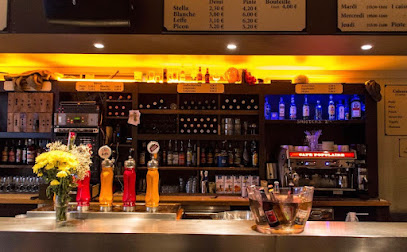
The George and Dragon
Experience the essence of British pub culture in Toulouse at The George and Dragon, a delightful gastropub offering delicious food and great drinks.
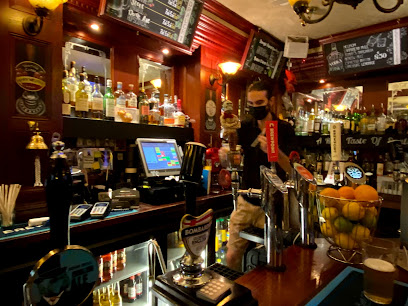
Melting Pot Pub
Visit Melting Pot Pub in Toulouse for an authentic Irish experience, delicious food, and a lively atmosphere perfect for sports enthusiasts.
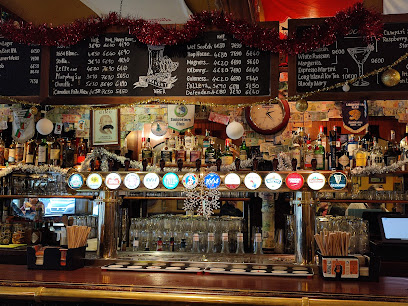
The London Town English Pub Toulouse
Experience British hospitality at The London Town English Pub, a vibrant sports bar in Toulouse serving classic dishes and live sports in a cozy atmosphere.
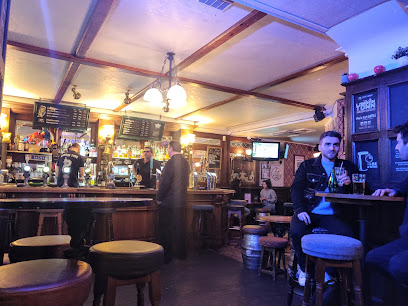
The Dry Dock
Experience the vibrant nightlife of Toulouse at The Dry Dock, where affordable drinks and a lively atmosphere await every visitor.
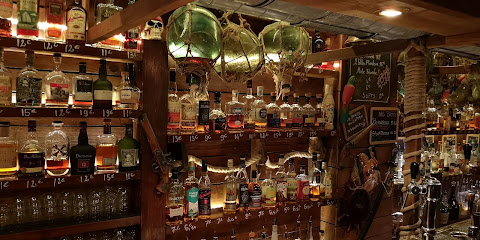
Pub O'Clock
Discover the vibrant nightlife at Pub O'Clock in Toulouse, where locals and tourists gather to enjoy drinks and good company in a charming setting.
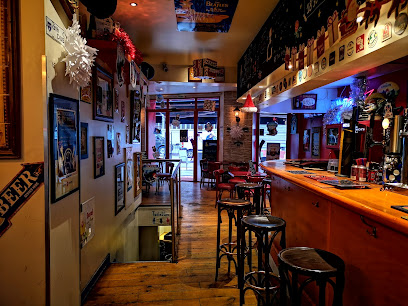
The Four Monkeys
Discover the lively tapas bar experience at The Four Monkeys in Toulouse, where delicious food and great drinks meet a vibrant atmosphere.
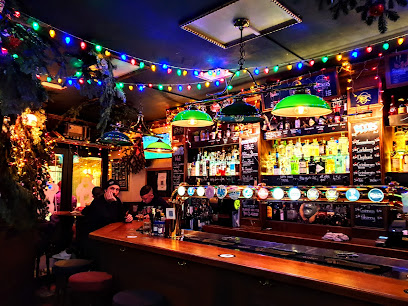
La Couleur de la Culotte
Discover the vibrant nightlife of Toulouse at La Couleur de la Culotte, a lively bar offering an eclectic drink menu and a festive atmosphere.
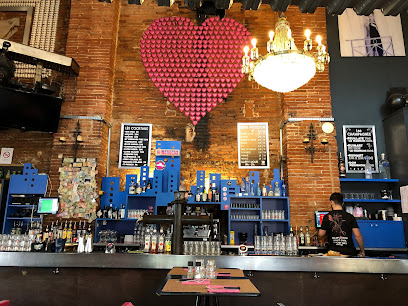
Fat Cat
Discover the art of mixology at Fat Cat, Toulouse's vibrant cocktail bar where every drink tells a unique story.
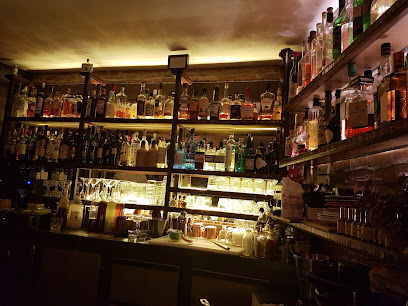
Thirsty Monk
Discover the vibrant atmosphere of Thirsty Monk, Toulouse's favorite pub offering a blend of Irish charm, local brews, and live sports.
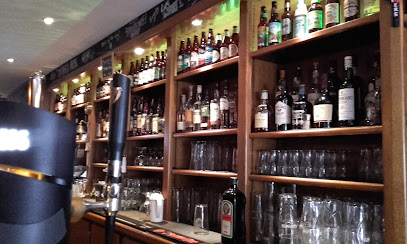
Le Petit Voisin
Experience the vibrant culinary scene at Le Petit Voisin, a delightful tapas bar in Toulouse offering delicious small plates and local wines.
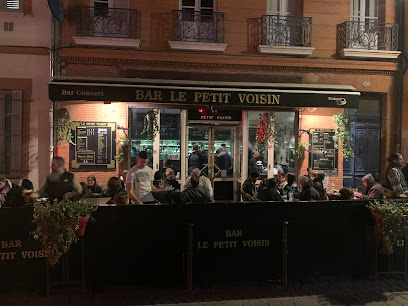
Au Fût et à mesure Toulouse
Discover the vibrant craft beer scene of Toulouse at Au Fût et à Mesure, where delicious tapas and live music come together in a lively atmosphere.
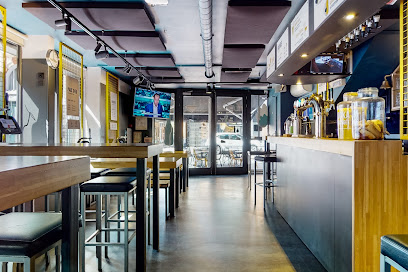
Pub Saint Pierre
Discover the vibrant energy and friendly atmosphere of Pub Saint Pierre, a must-visit bar in the heart of Toulouse offering a delightful selection of drinks.
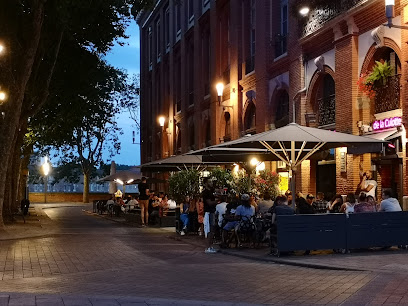
Local Phrases
-
- HelloBonjour
[bohn-zhoor] - GoodbyeAu revoir
[oh ruh-vwahr] - YesOui
[wee] - NoNon
[nohn] - Please/You're welcomeS'il vous plaît/De rien
[seel voo pleh/duh ryen] - Thank youMerci
[mehr-see] - Excuse me/SorryExcusez-moi/Désolé
[ehk-skyoo-zay mwah/day-zoh-lay] - How are you?Comment ça va?
[koh-mohn sah vah] - Fine. And you?Bien. Et toi?
[byen. ay twah] - Do you speak English?Parlez-vous anglais?
[par-lay voo ahn-glay] - I don't understandJe ne comprends pas
[zhuh nuh kohm-prahnd pah]
- HelloBonjour
-
- I'd like to see the menu, pleaseJe voudrais voir la carte, s'il vous plaît
[zhuh voo-dray vwahr lah kart, seel voo pleh] - I don't eat meatJe ne mange pas de viande
[zhuh nuh mahnj pah duh vyand] - Cheers!Santé!
[sahn-tay] - I would like to pay, pleaseJe voudrais payer, s'il vous plaît
[zhuh voo-dray pay-ay, seel voo pleh]
- I'd like to see the menu, pleaseJe voudrais voir la carte, s'il vous plaît
-
- Help!Au secours!
[oh seh-koor] - Go away!Allez-vous en!
[ah-lay voo zahn] - Call the Police!Appelez la police!
[ah-puh-lay lah poh-lees] - Call a doctor!Appelez un médecin!
[ah-puh-lay uh may-duh-sahn] - I'm lostJe suis perdu
[zhuh swee pair-doo] - I'm illJe suis malade
[zhuh swee mah-lahd]
- Help!Au secours!
-
- I'd like to buy...Je voudrais acheter...
[zhuh voo-dray ah-shet-ay] - I'm just lookingJe regarde juste
[zhuh ruh-gard zhust] - How much is it?Combien ça coûte?
[kohm-byen sah koot] - That's too expensiveC'est trop cher
[say troh shair] - Can you lower the price?Pouvez-vous baisser le prix?
[poo-vay voo bay-say luh pree]
- I'd like to buy...Je voudrais acheter...
-
- What time is it?Quelle heure est-il?
[kell er ay-teel] - It's one o'clockIl est une heure
[eel ay oon er] - Half past (10)Dix heures et demie
[dees er ay duh-mee] - MorningMatin
[mah-tahn] - AfternoonAprès-midi
[ah-pray-mee-dee] - EveningSoir
[swahr] - YesterdayHier
[yehr] - TodayAujourd'hui
[oh-zhoor-dwee] - TomorrowDemain
[duh-mahn] - 1Un
[uhn] - 2Deux
[duh] - 3Trois
[twah] - 4Quatre
[kat] - 5Cinq
[sank] - 6Six
[sees] - 7Sept
[set] - 8Huit
[wheat] - 9Neuf
[nurf] - 10Dix
[dees]
- What time is it?Quelle heure est-il?
-
- Where's a/the...?Où est...?
[oo est] - What's the address?Quelle est l'adresse?
[kell ay lah-dress] - Can you show me (on the map)?Pouvez-vous me montrer (sur la carte)?
[poo-vay voo muh mohn-tray (sir lah kart)] - When's the next (bus)?Quand est le prochain (bus)?
[kahn ay luh proh-shahn (boos)] - A ticket (to ....)Un billet (pour ....)
[uhn bee-yay (poor)]
- Where's a/the...?Où est...?
History of Toulouse
-
Toulouse, known in ancient times as Tolosa, has roots that reach back to at least the 2nd century BC. Originally a settlement of the Volcae Tectosages, a Gallic tribe, it was conquered by the Romans in 106 BC. The Romans established it as a prosperous city and a key hub on the Via Aquitania, a major Roman road connecting the Mediterranean to the Atlantic.
-
In the 5th century, Toulouse became the capital of the Visigothic Kingdom under King Theodoric I. The city witnessed the pivotal Battle of Toulouse in 439 AD, where the Visigoths defended their territory against the Romans. The Visigothic rule left a lasting imprint on the city, particularly in its early Christian architecture.
-
During the medieval period, Toulouse flourished as a center of commerce and culture. The establishment of the County of Toulouse in the 8th century marked the beginning of its rise in prominence. The city's strategic location by the Garonne River facilitated trade and made it a melting pot of cultures and ideas. The construction of the Basilica of Saint-Sernin, one of the largest Romanesque buildings in Europe, began in the 11th century, symbolizing the city's religious and architectural significance.
-
The early 13th century marked a tumultuous period for Toulouse with the Albigensian Crusade. The city was a stronghold of the Cathars, a Christian dualist movement considered heretical by the Catholic Church. The crusade, initiated by Pope Innocent III, led to the Siege of Toulouse in 1218. Despite the resistance, the crusade significantly weakened the city's autonomy and led to its integration into the Kingdom of France.
-
Toulouse experienced a cultural revival during the Renaissance. It became a center of humanism and learning, with the establishment of the University of Toulouse in 1229. The city's architecture flourished, and many of its iconic red-brick buildings, earning it the nickname 'La Ville Rose' (The Pink City), were constructed during this period. The 17th and 18th centuries saw further advancement in sciences and arts, making Toulouse an intellectual hotspot.
-
The French Revolution brought significant changes to Toulouse, as it did to the rest of France. The city's institutions were restructured, and it became a part of the Haute-Garonne department. The 19th century ushered in the industrial era, transforming Toulouse into a modern city. The introduction of railways and the development of the aerospace industry in the early 20th century marked a new chapter in its economic growth.
-
Today, Toulouse is known as the European aerospace capital, home to the headquarters of Airbus and numerous research and development centers. Its rich history is reflected in its diverse architecture, from ancient Roman remnants to contemporary structures. The city's vibrant cultural scene, university life, and annual events such as the Toulouse International Art Festival continue to attract visitors from around the world.
Toulouse Essentials
-
Toulouse is well-connected by air, road, and rail. The nearest airport is Toulouse-Blagnac Airport, located around 7 kilometers from the city center, with regular flights from major cities across Europe and beyond. From the airport, you can take a taxi, a shuttle bus, or the tram (Line T2) to reach the city center. Toulouse is also accessible by high-speed trains (TGV) from Paris, Lyon, Bordeaux, and other French cities. Additionally, several major highways connect Toulouse to other parts of France and Spain.
-
Toulouse has an efficient public transportation system managed by Tisséo, including buses, trams, and a metro system with two lines (A and B). Tickets can be purchased at stations, kiosks, or via the Tisséo app. For shorter distances, walking and cycling are popular options, with numerous bike rental stations (VélôToulouse) available throughout the city. Taxis and ride-sharing services like Uber are also available. Renting a car is an option, but parking can be challenging in the city center.
-
The official currency in Toulouse is the Euro (€). Credit and debit cards are widely accepted in hotels, restaurants, and shops. However, it is advisable to carry some cash for smaller establishments, markets, and tipping. ATMs are readily available throughout the city for cash withdrawals. Contactless payments and mobile payment options like Apple Pay and Google Wallet are also becoming increasingly common.
-
Toulouse is generally a safe city, but it is always wise to take standard precautions. Avoid walking alone at night in poorly lit or unfamiliar areas. Be cautious in crowded places such as markets and public transport to avoid pickpocketing. Areas like the Matabiau train station and parts of the Arnaud-Bernard neighborhood have higher instances of petty crimes targeting tourists. Always keep an eye on your belongings and be aware of your surroundings.
-
In case of emergency, dial 112 for immediate assistance, which connects you to emergency services including police, medical, and fire services. For non-urgent police matters, you can contact the local police station. Major hospitals such as the Centre Hospitalier Universitaire (CHU) de Toulouse provide medical services, and there are numerous pharmacies throughout the city for minor health issues. It is advisable to have travel insurance that covers medical emergencies.
-
Fashion: Do dress smartly, especially when dining out or visiting cultural sites. Avoid overly casual or revealing clothing. Religion: Do respect local religious customs. When visiting churches, dress modestly and avoid loud behavior. Public Transport: Do validate your ticket before boarding and keep it until you disembark. Don't eat or drink on public transport. Greetings: Do greet people with a 'Bonjour' (Good day) and a handshake. Don't be overly familiar with strangers. Eating & Drinking: Do try local specialties and be open to new dishes. Don't leave large tips; a small gratuity is sufficient as service is usually included.
-
To experience Toulouse like a local, visit the local markets like Marché Victor Hugo for fresh produce and regional specialties. Enjoy a leisurely stroll along the Garonne River or through the historic Saint-Cyprien district. Engage with locals at cafes and bars, and don't miss a rugby match at the Stade Ernest-Wallon. For a unique experience, take a boat cruise on the Canal du Midi, a UNESCO World Heritage site. Lastly, explore the vibrant cultural scene, including the numerous festivals, art galleries, and live music venues.
Trending Landmark in Toulouse
-
Place du Capitole
-
Pierre-Baudis Japanese Garden
-
Basilique Saint-Sernin de Toulouse
-
Jardin des Plantes
-
Couvent des Jacobins
-
Pont Neuf
-
Place Saint-Pierre
-
Cité de l'Espace
-
Square Charles de Gaulle
-
Saint Stephen's Cathedral
-
Grand Rond
-
Muséum de Toulouse
-
Les Abattoirs
-
Jardin Compans-Caffarelli
-
Pont Saint-Pierre
Nearby Cities to Toulouse
-
Things To Do in El Serrat
-
Things To Do in Ordino
-
Things To Do in Arinsal
-
Things To Do in Soldeu
-
Things To Do in Canillo
-
Things To Do in La Massana
-
Things To Do in Encamp
-
Things To Do in Pas de la Casa
-
Things To Do in Escaldes-Engordany
-
Things To Do in Andorra la Vella
-
Things To Do in Lourdes
-
Things To Do in Montpellier
-
Things To Do in Bordeaux
-
Things To Do in Girona
-
Things To Do in Huesca


















